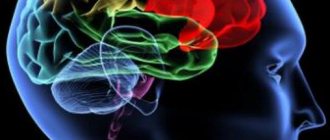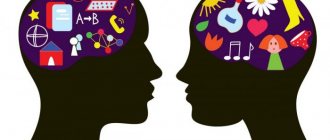Every person knows something. Some people are great at cooking, some people are good at landscaping. Some write good articles, publications, books, and some earn huge money on the stock exchanges. From childhood we learn things. First we acquire walking skills, then we learn the skill of knowing our native language. By the age of 4–5 we have mastered it at a sufficient level. Then we go to school and acquire skills in counting, writing, and so on.
These are all human skills. There is nowhere in this life without them.
Any business is improved by mastering technology. Every skill is achieved through exercise. Hippocrates
Simple and complex skills
Modern children are learning computers, which combine many other skills.
This may include proficiency in word processors, programming environments, and multimedia players. This is a complex skill. Unlike the simple one, it is quite difficult to fully master it and rarely does anyone understand all its aspects. Most often, some kind of specialization is acquired and a person swims in it like a fish in water. For example, rarely does anyone need to learn programming. Therefore, many people ignore computer knowledge at the program developer level. But at the user level (beginner, advanced), many people know it. Even pensioners, who are rarely friends with technology, have a good grasp of the main points on the computer. Communication on social networks with relatives, friends, for example, is easy for them.
Types of professional skills for a resume
The set of skills is conventionally divided into 4 groups , each of which corresponds to a specific activity:
- Thinking skills are important in intellectual activity. This is the ability to collect and analyze information (what is it?), structure knowledge “on shelves”, remember it and apply it at the right time.
For example, the key skills in the resume of an experienced investigator are knowledge of the law, the ability to work with legal frameworks, developed logical thinking, etc.
- Motor – this includes human movement in space, writing, working with equipment and tools.
For a secretary, touch typing skills are important; for an electrician, the ability to work with a screwdriver or hammer drill is important. Dancers must be able to dance, surgeons must be able to work with medical instruments, jewelers must be able to work with small parts. - Communication skills are how a person behaves in society and interacts with other people.
In the work of a manager (who is this?), concluding contracts, it is important to be able to talk with clients, motivating them to purchase a product. Psychologists learn to listen carefully to people, to capture barely noticeable but significant details in their speech. - Perceptual (sensory) – the ability to use the senses when perceiving the world around us: distinguish sounds, smells, touches.
These are key resume skills for sommeliers (who is that?), musicians, tasters, and more.
Each personality has its own set of skills to varying degrees: they mix and complement each other.
For example, the profession of a journalist requires that a person must be able to listen, ask the right questions, structure a story, and then create interesting articles.
Theoretical skills
Theoretical skills include everything that is associated with abstract material, but they do not know how to apply it in practice. So, knowledge of molecular biology is also a skill. Any skill is characterized by easy orientation to its essence. A skill can only be considered mastered when a person does not feel like he is performing an activity.
For example, a person who has learned to write does it automatically. He doesn't need to think about how to connect letters or how to draw them. Thanks to this, a person can gain the ability to write texts. After all, how can you write a high-quality, coherent and literate text if a person constantly thinks about how to draw a letter?
An example of a modern writer's skill
Also, for example, with typing text on a computer. When a person searches for each key before typing it on the screen, he cannot think about the content of the text. He loses his thoughts, the sentence becomes incoherent. After all, a person thinks when writing material, if he has mastered this skill, not in a word or even a sentence. He thinks in whole paragraphs. He can hold an entire structural part of an article in his head at one time.
And when a writer has mastered this skill, he doesn’t even have the question “How to write?” He already knows how, has received his own author's style and writes according to it. This is more than abstract knowledge about which artistic means are best used in certain moments. This is practice. So we gradually came to practical skills.
Why form them?
A careful analysis of any type of activity shows that it is the sum of different types of skills and abilities - the absence of one of them does not allow a person to obtain the desired result. This entails a deterioration in the quality of life and mental discomfort.
Lack of development of motor skills deprives a person of freedom of movement and action, communication, and causes unnecessary expenditure of effort, time and material resources.
Mental activity is impossible without observing and remembering information, comparison, analysis, without managing one’s own attention and state. It is closely related to the development of sensory skills in perceiving information auditorily, visually, and tactlessly. Sensitivity to odors is essential for chemists, cooks, doctors, and many other professionals.
Communication skills are considered particularly important and are formed on the basis of knowledge of the rules of behavior in various situations, allowing a person to take a worthy place in society and become its full member.
Practical skills
These are skills that are based primarily on a person’s own experience. They are also characterized by automation, but to obtain it, you need to put in a lot more effort. For example, mastering the blind method or speed reading at the proper level may require several years of regular training or direct practical activity.
Moreover, training gives full results only in the first stages. Any simulator with which a person works has the property of abstraction from real activity. From the very beginning, it really performs its functions at the proper level. But then a person already needs practice directly, tied to its type.
But practice is needed for both theoretical and practical skills. After all, how can you freely navigate physics if you don’t solve a single problem (which is essentially also a simulator) and don’t study the material for days? Remember the main rule - mastering any skill occurs only through practice , after which the transition of voluntary attention to post-voluntary attention occurs.
Ability to manage time
flickr.com
This is one of the cornerstones of productivity. Even if you are not interested in this topic, you will still have to work—that is, produce a product of labor—so you need to allocate your time wisely.
According to statistics, an average of two and a half (!) hours are spent per day on social networks alone. On Lifehacker you can find so much material on this topic that reading the articles can be equated to a university course.
Of course, your performance and your bonus do not depend solely on how well you schedule. But you know better where to spend the time freed up as a result of competent planning.
Terms of attention
What are these terms that were in the last sentence. The fact is that our attention can be involuntary, voluntary and post-voluntary.
Involuntary attention
Characteristic of unconditioned reactions to external stimuli. For example, a door hit somewhere, you were distracted, listened, understood the reason for this phenomenon, and returned to your work. Some involuntary stimuli are so intense that it is impossible to react to them for a couple of seconds and then continue working. To do this, you need to apply voluntary attention, which is characterized by the tension of volitional efforts to ensure a certain reaction.
Remember how you learned to ride a bike. From the very beginning, you had to perform many actions at the same time: pedal, keep your balance, watch for holes, make turns so as not to fall. It was all very difficult, you had to furiously concentrate your voluntary attention. At times, involuntary stimuli dominated, you became distracted, and you fell.
Post-voluntary attention
You thought you would never learn to ride a bike. But over time, you were calmly distracted by other stimuli, communicated with people, and could even hold the steering wheel with one hand and talk on the phone with the other. If there was some kind of hole, then there was no need to even go around it. You are confident that you will not lose your balance. This is where post-voluntary attention, which is characterized by automaticity of actions, comes into play. Now, even if a person is distracted and in the presence of unfavorable factors, the quality of work will not suffer. If a person's emotional background is unfavorable, he will still be able to do wonderful things. If a person is overcome by laziness, then it will not stop him from doing something. After all, a person no longer thinks about what he is doing. He just does it and perfect things come out of his hand.
Critical thinking and problem solving skills
Many people can work strictly according to instructions, but truly tasty and profitable projects and positions go to those who can look at things from an unusual angle and quickly solve complex problems. This skill alone can be made your profession, and if the ability to quickly find a way out is accompanied by other qualities, then there is no price for you.
What does high quality and fast mean?
It is believed that any action can be performed perfectly only if all attention is focused only on it. Actually this is not true. This is typical only for those activities for which the skill of performing has not yet been acquired. Then, indeed, the dispersal of attention plays a bad joke both on the learning process and on the activity itself.
Many people strive to do things quickly. But in reality this does not happen. Fast work can only be done if there is automatism, that is, when the skill is formed. What is fast? In fact, this concept is individual for everyone. It all depends on his inclinations. Temperament plays a very important role here. Thus, choleric people are able to complete any task as quickly as possible, while melancholic people cannot work at such speed.
Therefore, when checking whether a person is doing work quickly or not, you need to look first of all not at the numbers on the stopwatch, but at your subjective feelings . It is important that the work is not felt. Only then can we talk about its speed. But there is nothing wrong with competing with yourself in terms of how quickly you can do things.
Ability to express thoughts in writing
flickr.com
We already have a lot of copywriters, journalists and writers, so why should you learn to write if your work with texts has nothing to do with it? Hint: 36% of employers, according to the portal hh.ru, refuse an interview and do not even consider a resume if the cover letter was written with errors. That is, they won’t even invite you if they see that you described your “functionality.”
The inability to connect two words can become a wall on the path to promotion. A novice engineer can work only with hardware for several years. But the job of a manager, for example, is not so much in development as in management. This means that you need to write letters, memos, assignments, reports... and put all your effort into learning your native language in order to keep a new job and salary.
Technologies for using the skill
Each skill has its own implementation technology. Therefore, these numbers need to be increased not by focusing on speed, which is possible without loss of quality only when a person already copes well with his task. This must be done precisely through technology. You need to think about what accompanying skills will help speed up the assimilation of this and, in the future, can affect the speed of completing this task.
Each skill has its own technologies. For example, for a modern writer, speaking skills, touch typing, and speed reading can significantly improve the quality of writing. Touch typing can also help with programming, but you also need to be able to effectively write algorithms and debug programs. For the same oratory, related skills will be acting, the ability to behave on stage, and the skill of contact with the audience.
Introduction to technology
fishki.net
Jokes about the confrontation between accountants and administrators are still popular, oddly enough. It is assumed that today everyone without exception has experience communicating with technology.
And if you come to the office, then on the very first day you need to figure out where the company stores electronic documents and in what messenger the departments communicate with each other. Yes, and contacting technical support with the wording “I didn’t do anything, it was all he himself,” pointing a finger at a frozen computer, is no longer respectable.
And the better your technology communication skills, the more career opportunities you have. You don't have to become a geek, but you need the basics like air.
Stages of skill development
How can you find out at what stage of development a certain skill is at? There are certain criteria for this. So, let's look at the stages of development of each skill. It is important to note that ideal automation can only be achieved after several years, or even decades, if you constantly work to improve your skills. Some people work for decades and do everything poorly precisely because they do not work on themselves.
Ability to speak
Expressing thoughts verbally goes hand in hand with the previous rating point. Moreover, speaking skills help not only in work. If your job requires you to make presentations or conduct meetings, then competent speech is a prerequisite for work. And if you sit in silence in an office or laboratory, the ability to talk allows you to adapt to the workplace faster. Gloomy silent people are loved only by other gloomy silent people, and even then not very much.
To show that you can talk, you don't need to speak in poetry or constantly chat. The rules for good oral communication are different:
- Smile.
- The ability to listen to the interlocutor and not interrupt.
- Calling by name.
- Simple and succinct answers to the questions asked.
- Ability to present facts consistently and logically.
Actually, that's all. And don't try to make jokes if you've never tried yourself as a comedian before.
The first stage is the student stage
The person has already become familiar with his activities, and a little fear has subsided. The man realized that if he puts in some effort, the skill will be achieved after some time. At the same time, a person has almost no theoretical or practical experience. So he has to learn to do even the most basic things. For a writer, this might be writing a coherent sentence. In mathematics this is arithmetic, in linguistics we can consider the main points in style, spelling, and punctuation. In football, this could be general physical endurance, ball handling skills, and so on.
Salesmanship
flickr.com
No, no, no, not in the sense that everyone should look for clients and be masters of cold calling. You just need to know how to bargain. For example, when you are talking about a salary increase or determining the size of your future salary. Learn to sell your time and receive comfort as a reward. You need to be a good trader to reschedule a deadline, negotiate project changes proposed by the team, or negotiate remote work.
Fifth stage - master
Naturally, difficult situations in work also happen to masters, but their percentage is less than one. Such a person not only knows how to do something, but also finds interesting approaches to performing any activity. This is a zone of professional creativity. A person can not only masterfully perform his work, the performance of which is almost invisible to others, but he is also able to teach others. As a rule, people do not become masters before the age of 50. To develop a person as a master, you need to devote at least 25 years to this activity.
The ability to control your emotions is perhaps the most useful skill for communication. But the most harmful to health... Author unknown
Communication with the professional community
In fact, this skill is almost impossible to find in the list of requirements for a job applicant, because few people see a direct relationship between communication in the professional community and work. But this may affect performance. For example, if you are involved in a field that is rapidly developing and want to keep up with progress, you need to constantly learn from others' experiences. And if you attend industry conferences, then you have a chance to find customers and partners at them. In addition, knowledge of the community makes it possible to find and consult with experts.
Definition of concepts
Any learning process allows a person to acquire a certain set of skills and abilities. The basic components are gradually expanded and help to achieve success in learning and work.
Skill – possession of acquired knowledge, the way of applying it in practice. A skill is also an action that is aimed at achieving a specific goal or solving a problem assigned to a person.
A skill is an activity or ability that has been brought to automaticity through memorization or long and repeated repetition. Any new action, if it was previously unfamiliar to a person, first acquires the status of a skill and only then becomes a skill.











